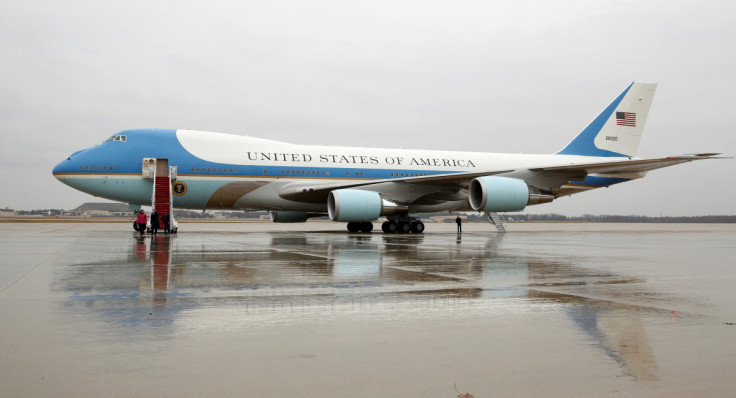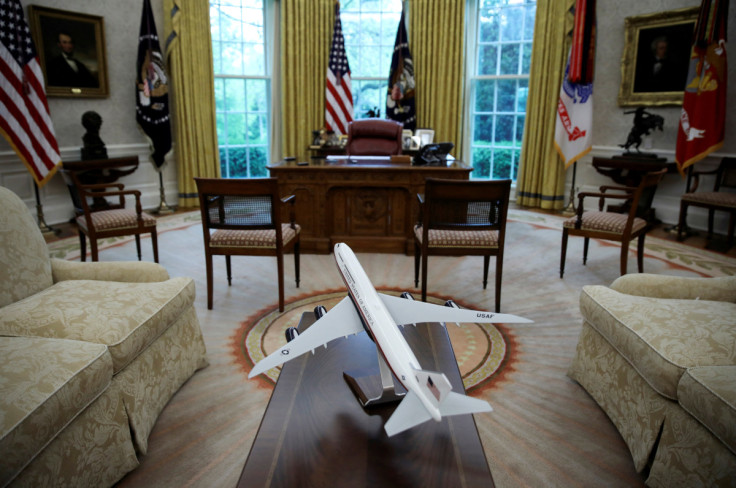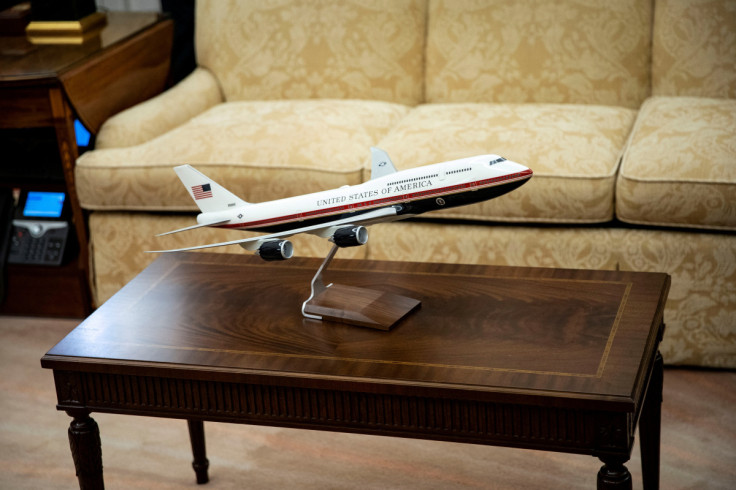Boeing Losses Mount On Troubled Air Force One Program

Boeing said Wednesday the company would take a new $766 million charge on its 2018 billion contract to build two new U.S. presidential airplanes that faced repeated setbacks.
Boeing Chief Executive Dave Calhoun on Wednesday said "critics were right" to slam the planemaker's deal. Then President Donald Trump secured a promise from Calhoun's predecessor, Dennis Muilenburg, that the cost of replacing Air Force One would not exceed $4 billion.
"We didn't get enough price," Calhoun told CNBC saying the company, adding the "biggest mistake" on the Air Force One "was the fixed price nature" of the contract.
Boeing previously booked about $1.1 billion in charges on the program since 2020 and has now racked up $1.9 billion in losses on the $4.3 billion program that is up to three years behind schedule.
Trump in 2016 had urged the government to cancel purchase of Boeing's new Air Force One saying it was "ridiculous" and too expensive."
The planemaker's ailing defense business Wednesday recorded a $2.8 billion charge for a number of programs, including Air Force One. On Tuesday, Reuters first reported Boeing appointed a senior troubleshooter to help turn around loss-making programs at its Defense, Space & Security (BDS) division.
The Boeing 747-8s are designed to be an airborne White House able to fly in worst-case security scenarios, such as nuclear war, and are modified with military avionics, advanced communications and a self-defense system and are now expected to be delivered in 2026 and 2027.
Boeing said the Air Force One losses were "driven by higher costs to incorporate certain technical requirements, increases to factory modification labor and support engineering, schedule delays and higher supplier costs."
Boeing warned that "risk remains that we may record additional losses in future periods."
In June, the U.S. Government Accountability Office (GAO) said the Air Force One program risked further delay citing a tight labor market for mechanics and lower-than-expected security clearance rates.
The report also cited Boeing's need to switch to an alternative supplier for some interior work as a major schedule risk.
Boeing Chief Financial Officer Brian West said labor stability issues for Air Force One "are magnified because of the requirements to get security clearances."
In June, the Pentagon scrapped a paint scheme for Air Force One proposed by Trump, after the military determined the design would create too much heat for the presidential aircraft.


© Copyright Thomson Reuters 2024. All rights reserved.





















